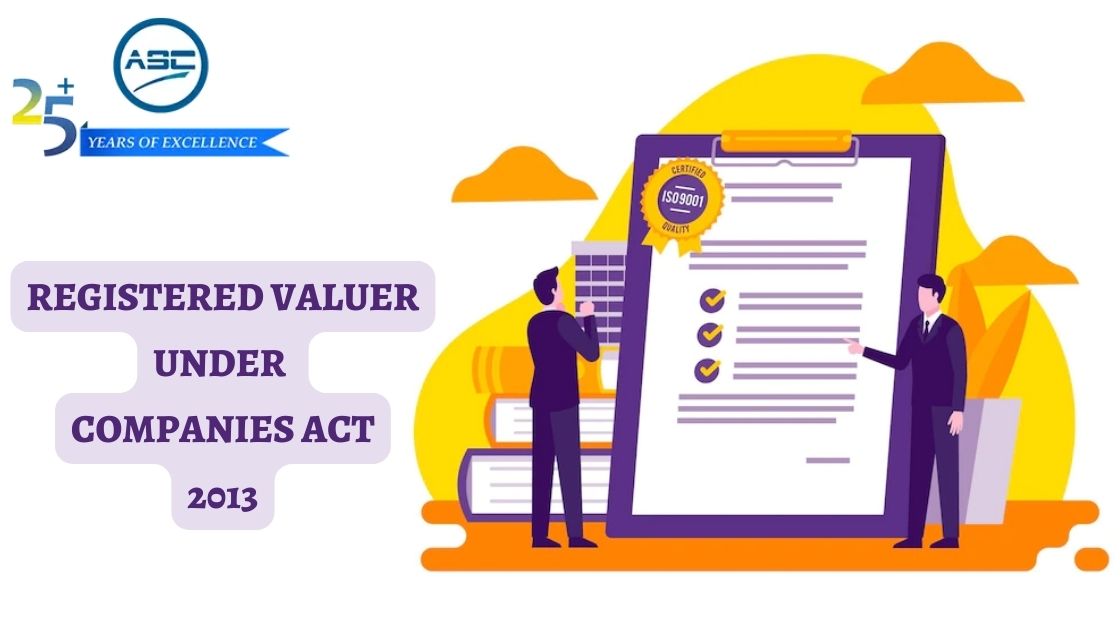Requirement of Registered Valuer under Companies Act, 2013 for Valuation

The company law in India lays down explicit provisions governing the valuation. Section 247 of the Companies Act, 2013 governs the requirements of a registered valuer, his functions, and penalties. Further, various provisions of the Companies Act lay down the scenarios whereby valuation is required to be made by a registered valuer. Let’s understand some of these scenarios as well as who can act as a Registered valuer under the Companies Act, 2013.
Section 247 of the Companies Act, 2013
Section 247 states that in case of valuation is required to be made in respect of shares, stocks, debentures, properties, goodwill, securities, or any other asset under any of the provisions of this Act, then it shall be done by a registered valuer. Such Registered valuer under the Companies Act shall be a member of a recognized organization and shall be appointed by the audit committee or Board of Directors, as the case may be.
Situations Requiring Valuation Under the Companies Act 2013
Following are the situations that require a Registered valuer under the Companies Act, 2013:
1) Further Issue of Shares – Section 62(1)(c)
If a company proposes to issue further share capital, then the price of such further issue shall be determined by the registered valuer. Further, where the shares are issued by a company on a preferential basis for cash or for consideration other than cash, then such shares shall be offered only if the price of such shares is determined by a registered valuer.
2) Valuation of Assets – Section 177(4)(vi)
In case the valuation of assets is required under this act, then it shall be done by a registered valuer only.
3) Valuation of Assets that are Acquired for Consideration Other than Cash – Section 192(2)
If a director of a company or its subsidiary or associate company acquires any asset from the company for consideration other than cash, then the value of such assets shall be determined by a registered valuer.
4) Valuation of Shares and Property in Compromise and Arrangement
In case of a compromise or arrangement entered between the company and the shareholders or the creditors, the valuation report of the shares, securities, assets, or properties, tangible or intangible, movable or immovable shall be made by a registered valuer. The valuation report shall be shared with the creditors and shareholders.
5) Merger and Amalgamation
In case the company is entering into a merger or amalgamation transaction, then the valuation report of the shares, securities, assets, or properties, tangible or intangible, movable or immovable shall be obtained from a registered valuer. The Registered valuer under the Companies Act, 2013 shall also provide the swap ratio report. Further, in case a dissenting member of the transferor company wants to exit the company by transfer of his shares, then he may require the liquidator of the company to purchase his interest at a price determined by the Registered valuer under the companies act.
6) Liquidation of Company
In case a company is in the process of winding up, then a valuation report from the registered valuer shall be submitted to the such liquidator to determine the value of the assets and liabilities. In case of voluntary winding up of the company, the declaration of insolvency provided by the directors shall be accompanied by a valuation report issued by a Registered valuer under the companies act, 2013.
Issue of Sweat Equity Shares
In case of the issue of sweat equity shares to the directors or employees of the company, the value of the intellectual property, value additions or know-how against which the sweat equity shares are being issued shall be determined by the registered valuer under the companies act, 2013. In case the sweat equity shares are issued for consideration other than cash, then such shares shall be issued based on a valuation report by the Registered valuer. Further, if they are issued against the acquisition of an asset, then the value of such asset shall also be determined by a Registered valuer under the Companies Act, 2013.
In a Nutshell
The valuations under the Companies Act, 2013 shall be done by a registered valuer irrespective of the situation requiring a valuation. Therefore, the law has put in place explicit requirements as to who can act as a registered valuer. Different qualifications have been prescribed for different classes of assets. This includes:
- For valuation of land & building: Graduate or Post Graduate in architecture, civil engineering, or town planning with a minimum experience of 3 to 5 years.
- For valuation of plant & machinery: Graduate or Post Graduate in electrical or mechanical engineering with a minimum experience of 3 to 5 years.
- For Valuation of securities or financial assets: Member of ICAI, ICSI, Institute of Cost Accountants of India or an MBA with specialization in Finance with minimum experience of 3.
If you require any assistance in relation to the Registered valuer under the companies act, 2013, please feel free to contact the ASC Group.

Leave a Reply